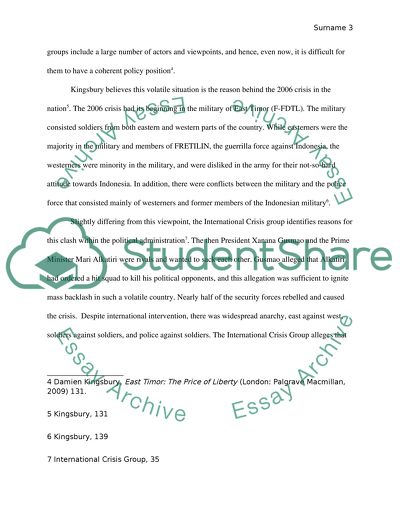Cite this document
(“East Timor Research Question - East Asia Research Paper”, n.d.)
Retrieved from https://studentshare.org/social-science/1665577-east-timor-research-question-east-asia-research-paper
Retrieved from https://studentshare.org/social-science/1665577-east-timor-research-question-east-asia-research-paper
(East Timor Research Question - East Asia Research Paper)
https://studentshare.org/social-science/1665577-east-timor-research-question-east-asia-research-paper.
https://studentshare.org/social-science/1665577-east-timor-research-question-east-asia-research-paper.
“East Timor Research Question - East Asia Research Paper”, n.d. https://studentshare.org/social-science/1665577-east-timor-research-question-east-asia-research-paper.


